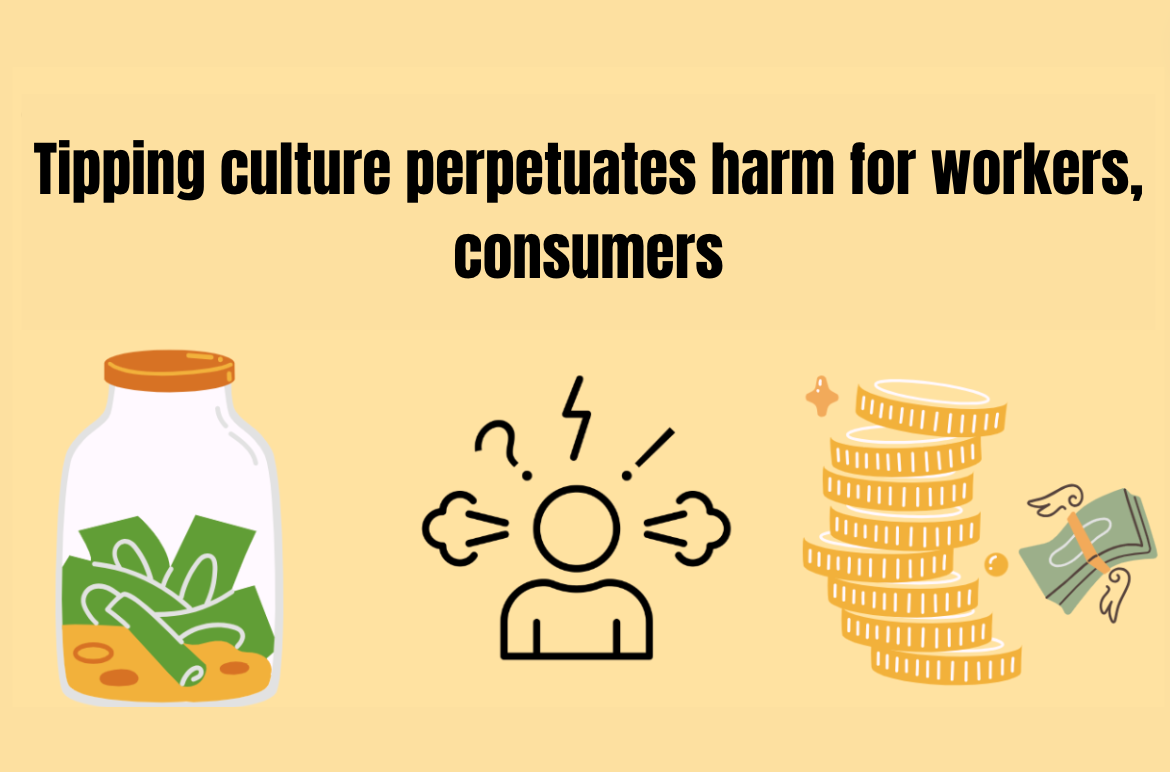Since I joined the ASL community the autumn after James Malin (’15) graduated, I haven’t met him, but I appreciated reading his article in The Standard’s November/December issue, “Inside the Trump Campaign.”
What I appreciated most were his references, if brief, to policy. I came to London from Washington, D.C., where I’d lived most of my adult life, surrounded by family and friends who are steeped in policy issues. Besides the inflammatory rhetoric of 2016’s campaign season, what sickened me most was the dearth of substantive policy discussion. I was frustrated for myself and for my students, many who were cognizant of the content of a presidential campaign for the first time, and yet were witnessing a parade of platitudes and impish rhetoric.
Before I address my primary concern with Malin’s claims, let me also praise his desire to be a part of a community that encourages and facilitates thought-provoking debate. I come from a politically divided home, and while my parents have voted outside of their preferred parties, they have tended to cancel out each other’s votes. So in a private sphere, I have long experienced the tension but also the critical thought and challenge that comes from divergent opinions trying to coexist.
I hope that after 2020, we once again have the caliber of candidates that allows for spirited, intellectual and rigorous debate. Donald J. Trump was sadly not a candidate that granted this.
This is primarily why I do not feel Malin’s concerns about the poll conducted at ASL are accurate. Malin wrote that the poll conducted at ASL indicated “not a single…strain of conservative ideology.” But he must surely know that many registered Republicans refrained from voting for Trump. I know other Republicans who did vote for Trump but did so quietly, noses held, purely out of party loyalty, hoping he would concede the reins to those Republican leaders with more experience, more qualified to do the job.
I think it is rational that ASL’s American faculty, registered Democrat, Republican, or otherwise, would choose not to vote for the candidate who so egregiously stands against their school’s mission statement, learner profile and basic sense of ethics. The diversity of thought and ideas is well and alive at ASL, I can assure Malin of this. But frankly, his candidate brought loud horns full of sound and fury, signifying nothing.
A small confession. As an educator, I felt a strange liberation this election; never before have I been so open about my choice for candidate with my students, primarily because the other candidate stood so squarely against the core values of every school I’ve worked at and attended. But that liberation came at a hefty price. I worried and continue to worry, as many educators of young people do, about the language Trump uses, both knowingly and unknowingly on camera: The truncated vocabulary, the aggressive, bombastic speeches dealing less in facts than in sensations, easy emotions and unfounded observations, and certainly the demeaning and inflammatory remarks made on tape. Frankly, it has felt predatory. I don’t want my students and my own children to think this is the language of diplomacy, public service or character.
ASL does champion diversity, and where it sees a lack of diversity it is working to remedy it. Our mission statement ends with “providing an outstanding American education with a global perspective.” Most of us here are immigrants who see the value of bridge-building not just within our home countries, but without. We are not in the practice of approaching the globe fearfully, mistrustfully, naming our own personal interests first. Teaching requires service of the highest order; each minute we are asked to think outside ourselves and our own interests, and we push our students to do likewise. The greatest quality we can offer and model for students, in my opinion, is empathy. Empathy comes from hearing, learning, reading, experiencing the stories of others. In his fear-mongering Trump has capitalized on a strange and reactive swell of bitterness toward those with different stories or accents or skin color or religion or ability or gender that is anathema to the spirit of ASL. And therefore to disavow Trump’s rhetoric is not to neuter informed debate but to reject the ways in which he stands in direct contradiction to what ASL stands for.
2016 was the fourth election cycle of my teaching career, and never have I experienced a student reaction like this one. By halfway through first period on November 9, 2016, I had listened to one of my student’s concerns that he may not be allowed to marry in four years time. Another said he overheard younger students imitating what they had heard Trump say in disgust about his religion. Another bemoaned how much intolerance has been normalized in the last six months. As a teacher this leaves me deeply sad. I am confused. I am angry. I am fearful, mostly for my students and my own children and the damage a xenophobic, ignorant, self-serving president might do.
But I am also hopeful because it is my job to be hopeful. My students were brave and generous with their thoughts that morning. This gives me hope. In his essay “American Things,” Tony Kushner writes, “The truest characteristic of freedom is generosity, the basic gesture of freedom is to include, not to exclude.”
The young people I know, know the world like never before; it is too late to circle the wagons, batten down the hatches, or apply any of these clichéd responses to change. In the course of its history, America has progressed and regressed. If we look at the patterns of American history, progress has been followed by periods of xenophobia, racism, fear and regression. (Just consider John Calhoun’s defense of slavery and Jim Crow laws and the anti-suffragists.) But these regressions have proven to be temporary again and again. America has become a progressively greater country because of inclusion, not exclusion. But it is, of course, those hurt during the times of regression that scares me the most.
Malin expressed concern for Americans presumably outside of his immediate sphere: Those in need of hope, destitute and as he notes, left behind. I worry that these people, vulnerable people, have been hoodwinked by Trump, that the promise to deliver on “every dream you ever dreamed” will not even come close to being delivered. But I do hope I’m wrong.
I agree with Malin that this election was a red flag to many inattentive Americans. It is the best in America that acknowledges those most vulnerable voices, those that have felt silent and silenced, and invites them to the table. But inviting them in does not and should not mean dismissing others.
America needs constant reminders of how to be free and how to be brave. Trump has been a wake up call to be involved, to extend the hand. But thus far he has been a counterexample of what it is to be free and brave. He has led with brutish narcissism, responding to the smallest of criticisms in the smallest, most childish and most belligerent of ways. It is not a biased media telling us this; it is President Trump’s Twitter account.
I was hopeful that Trump’s xenophobic rhetoric was an attention-getting ploy. Sadly, so far we are seeing the same embarrassing, self-indulgent, undisciplined language and choices: A nomination of a climate-change skeptic to lead our EPA and a billionaire with unprecedented conflicts of interest and zero experience with public education to lead our education department; an Orwellian and impetuous command to journalists to shut up; an insistence on “alternative facts” instead of owning mistakes; an avowal that torture “absolutely works” as a means of interrogation; and most recently an acknowledgment that priority of immigration will be given to “religious minorities”. In a country that is born of immigrants and inclusivity, this last one is perversely laughable, not to mention, as Senator Ben Sasse recently noted, it is a sure way to lose “our generational battle against jihadism.” These are not only abnormal executive orders and practices; they are unhealthy for democracy.
Trump has descended his escalator to a job he is magnificently unfit to do. The results of ASL’s poll are a reflection of values, not partisan politics. This faculty believes in decency, kindness, intellect, honesty and humaneness. I am proud of a faculty and community that despite differing opinions on politics, shares a moral fiber. So I offer Malin this comfort: Had it been a Kasich-Clinton election—that is, a clash of differing political views but one bound by constitutionality, respect for the rule of law and absent of the cruelty that has been the hallmark of the young Trump Administration—I suspect you would have found the breadth of views and debate you’re wishing for. Alas, Trump, his approach, and his cronies make that impossible.
Alissa Mears, High School English Teacher








